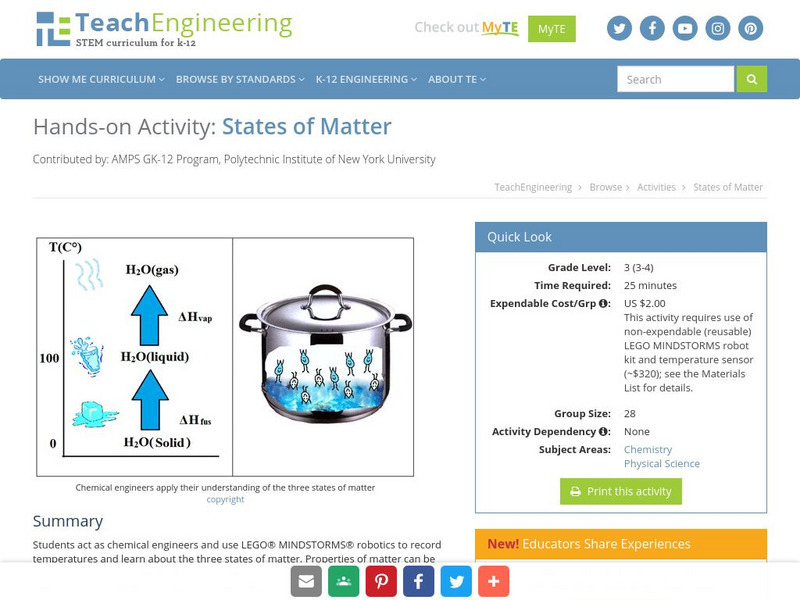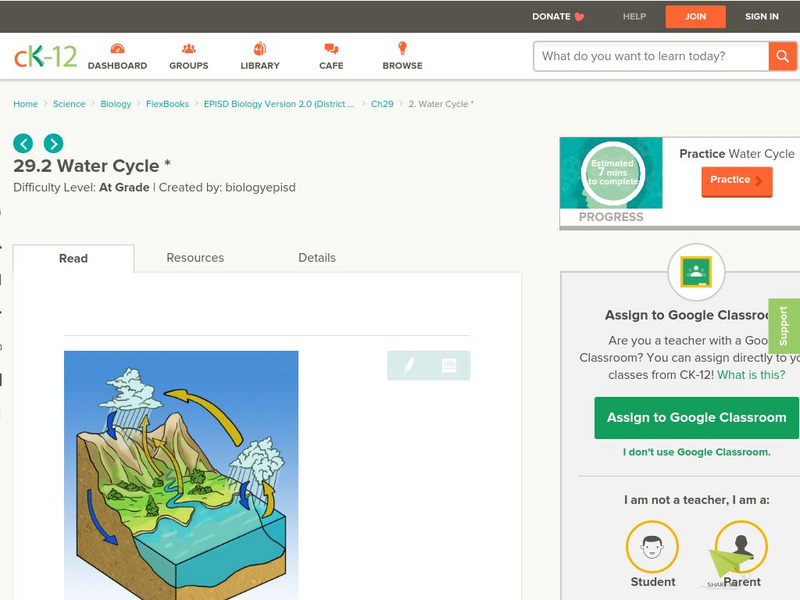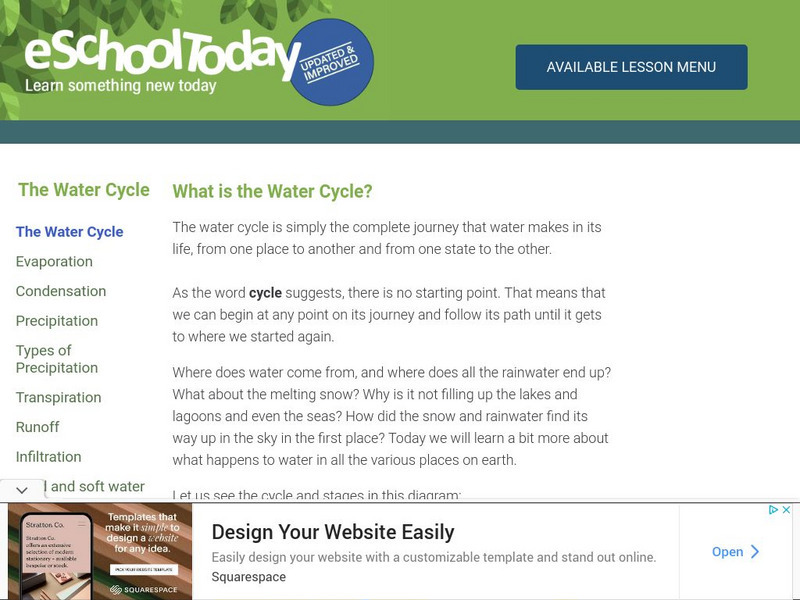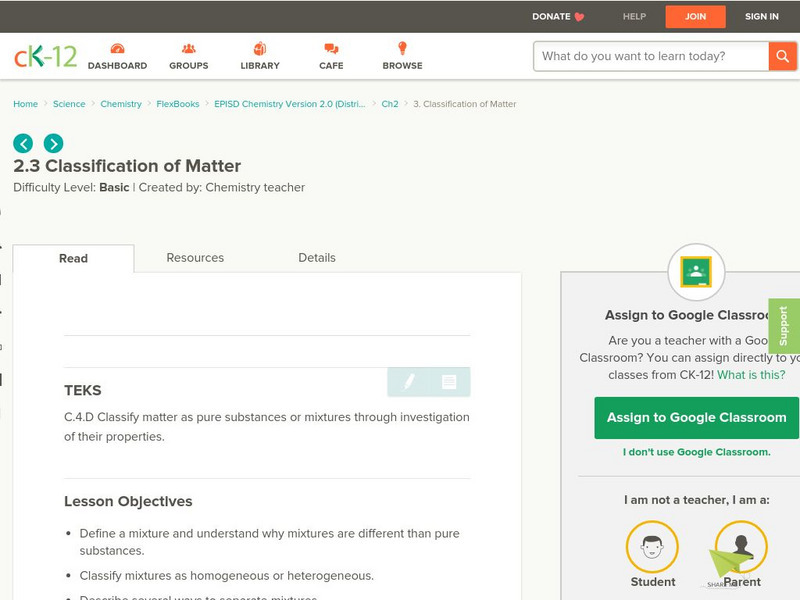Curated OER
Water, Water Everywhere
In this water worksheet, students complete a five question multiple choice online interactive quiz about water. This is a more advanced quiz that includes chemistry questions.
Curated OER
Clouds as Art: Torn Paper Landscape
Young scholars create a torn paper landscape and use it to study clouds. In this cloud study and art lesson, students make a background art image from torn paper. Young scholars create a torn paper landscape and use cotton balls to...
Curated OER
Clouds and Your Imagination
Learners study and illustrate clouds. In this cloud study lesson, students study clouds and then illustrate what they see. Learners use their imaginations to interpret images from the cloud picture they drew.
CK-12 Foundation
Ck 12: Physical Science: Evaporation
[Free Registration/Login may be required to access all resource tools.] Definition of evaporation, how it occurs, what affects its rate and evaporative cooling.
TeachEngineering
Teach Engineering: States of Matter
Students act as chemical engineers and use LEGO MINDSTORMS NXT robotics to record temperatures and learn about the three states of matter. Properties of matter can be measured in various ways, including volume, mass, density and...
Georgia State University
Georgia State University: Hyper Physics: Temperature Regulation of the Human Body
Discusses the methods the human body uses to regulate body temperature. Includes links to the four external heat transfer mechanisms (radiation, conduction, convection, and evaporation of perspiration).
CK-12 Foundation
Ck 12: Episd: Water Cycle
[Free Registration/Login may be required to access all resource tools.] An introduction to the biogeochemical cycle, the water cycle. Recognize evaporation, sublimation, and condensation. Identify groundwater and runoff water supplies.
Science Education Resource Center at Carleton College
Serc: Investigating Three Main Ingredients Needed to Create a Cloud in a Bottle
In the science lab, learners will create and observe the conditions necessary to make a cloud in a bottle.
US Geological Survey
U.s. Geological Survey: What Is the Water Cycle?
A quick summary of the water cycle that includes a diagram of the cycle, with links to in-depth explanations of each component of the cycle. Click "water-cycle home" to access water-cycle resources in a variety of languages.
eSchool Today
E School Today: Your Revision Notes on the Water Cycle
Learn about the different stages of the Earth's water cycle, and about processes involving water, including runoff, infiltration, and the differences between hard and soft water.
CK-12 Foundation
Ck 12: Classification of Matter
[Free Registration/Login may be required to access all resource tools.] In this online tutorial students will define a mixture and understand why mixtures are different than pure substances. They will classify mixtures as homogeneous or...
New York University
Nyu: Welcome to Water
Educational resource invites users to understand the properties of water by first examining what water is and how we use it and then leads users to further information on the three states that water can exist.
US Geological Survey
Usgs: "Thirsty? How 'Bout Seawater?"
This U.S. Geological Survey website explains the desalinization method used by some communities to change sea water into drinking water. Click Home to access the site in Spanish.
Curated OER
Science Kids: Science Images: Atmospheric & Ocean Circulation
A diagram which shows how the process of atmospheric and ocean circulation works. It features such important terms as precipitation, evaporation, sublimation, snow, accumulation, wind redistribution, melt, runoff, heat, ice flow and...













